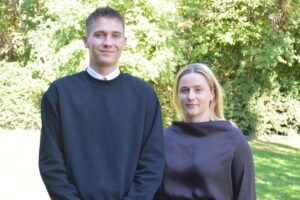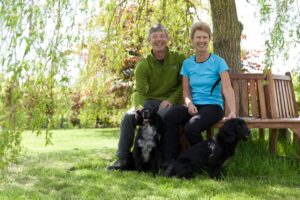Sunderland Cardiac Arrest Survivor Reunites with Lifesaving Ambulance Crew

A Sunderland man who survived a sudden cardiac arrest has been reunited with the emergency ambulance crew that helped save his life, along with the cardiologist who supported his recovery.
Seventy-three-year-old George Newman was enjoying a firework display with his family when he began feeling chest and arm pains on the evening of November 2. His wife, Brenda, quickly called 999, and the North East Ambulance Service (NEAS) dispatcher Ellen Renwick, on one of her first shifts, sent a crew to their home.
On arrival, paramedics Stuart Tait and Ian Cawood found George in critical condition. His symptoms worsened rapidly, and he went into cardiac arrest. The team immediately performed chest compressions, used a defibrillator, and administered five shocks to restore his heartbeat.
“We arrived just in time,” Stuart recalled. “His wife and grandson were there, and we reassured them as best we could. Thankfully, we were able to restore his pulse, and he was rushed to Freeman Hospital in Newcastle for emergency treatment.”
George underwent a stent procedure and spent a week recovering in the coronary care unit. He later received rehabilitation support from South Tyneside and Sunderland NHS Foundation Trust, which provided exercise therapy, health education, and even CPR training for his family members.
Dr. Michael Norton, consultant community cardiologist for the Trust and deputy medical director at NEAS, praised the quick response of George’s family. “The real heroes in this case were Mr. Newman’s wife and grandson. Their immediate CPR efforts gave our NEAS colleagues the best possible chance to restart his heart.”
Reflecting on his experience, George expressed deep gratitude to his lifesaving team. “Every day is a bonus now, thanks to the paramedics. I wanted to meet them in person to say thank you—not just from me, but from my whole family.”
Dr. Norton urges the public to learn CPR, emphasizing its life-saving importance. “If someone collapses and isn’t breathing, start CPR and call 999. Seconds matter, and even hands-only CPR can make all the difference.”
For more information on CPR training, visit the British Heart Foundation website.


